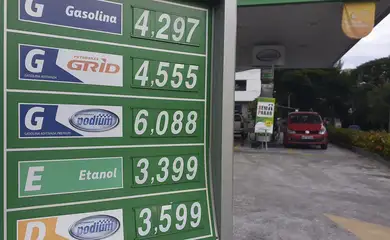Banco do Brasil negotiates carbon credits on foreign market

For the first time in its history, Banco do Brasil has traded carbon credits on the international market. The bank acquired 5,000 carbon credits from the Envira Amazonia Project, a secondary market operation facilitated by the French bank BNP Paribas. It subsequently sold these credits to Standard Chartered Bank abroad. This pilot transaction conducted on Friday (Oct. 13) served as a validation test for Banco do Brasil's innovative business model.

Certified by Verra, the leading assessor in the voluntary carbon market, the Envira Project contributes to forest conservation and reduction in deforestation and degradation, protecting over 200,000 hectares of the Amazon Rainforest. The project is also endorsed with the Climate, Community, and Biodiversity (CCB) certification, signifying that part of the credits generated benefits local communities.
Banco do Brasil is aiming to establish itself as a key player in carbon market operations, ranging from the development of credit-generating projects to the trading of these assets. It also plans to provide expertise in conducting greenhouse gas emissions inventories. According to the bank, the projects it supports are helping to preserve over 500,000 hectares of native forest.
Earlier this month, Banco do Brasil established a strategic unit focused exclusively on environmental, social, and governance practices, reinforcing its commitment to sustainability. In alignment with the 12 commitments for a more sustainable future, particularly reforestation and forest conservation, the bank has set a target to conserve or reforest 1 million hectares by 2025.
Expansion
In 2022, the global voluntary carbon credit market reached $2 billion, and experts anticipate exponential growth in the years ahead. In Brazil, Way Carbon, a consultancy specializing in the segment, estimates that the trading volume will reach $20 billion by 2030.
Through the carbon credit market, companies offset their greenhouse gas emissions, with each company having an allocated emission limit. Companies emitting less can acquire credits, which are sellable to those exceeding their emission limits. A carbon credit is equivalent to 1 ton of carbon dioxide (CO2) or other greenhouse gases that are no longer released into the atmosphere.
Companies can also acquire carbon credits by financing environmental or sustainable development projects. Carbon markets have gained prominence since the signing of the Kyoto Protocol by United Nations (UN) member countries in 1997.





